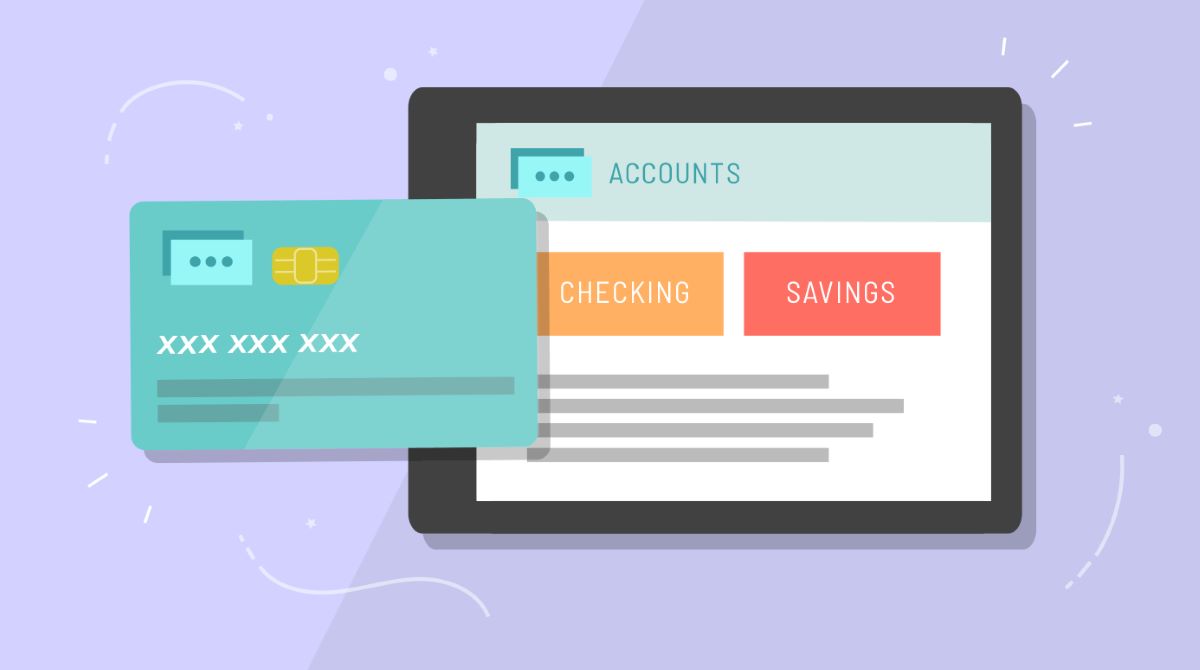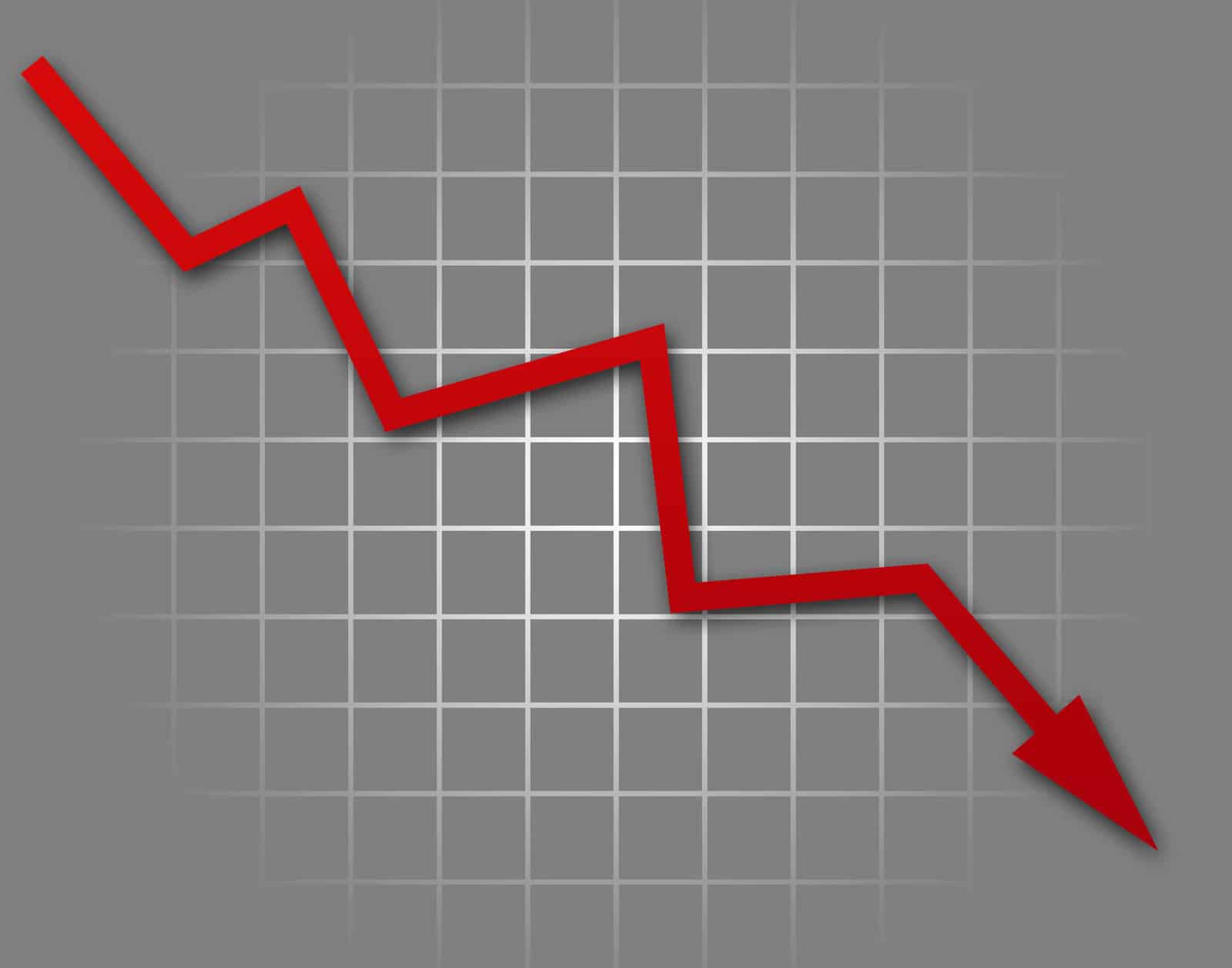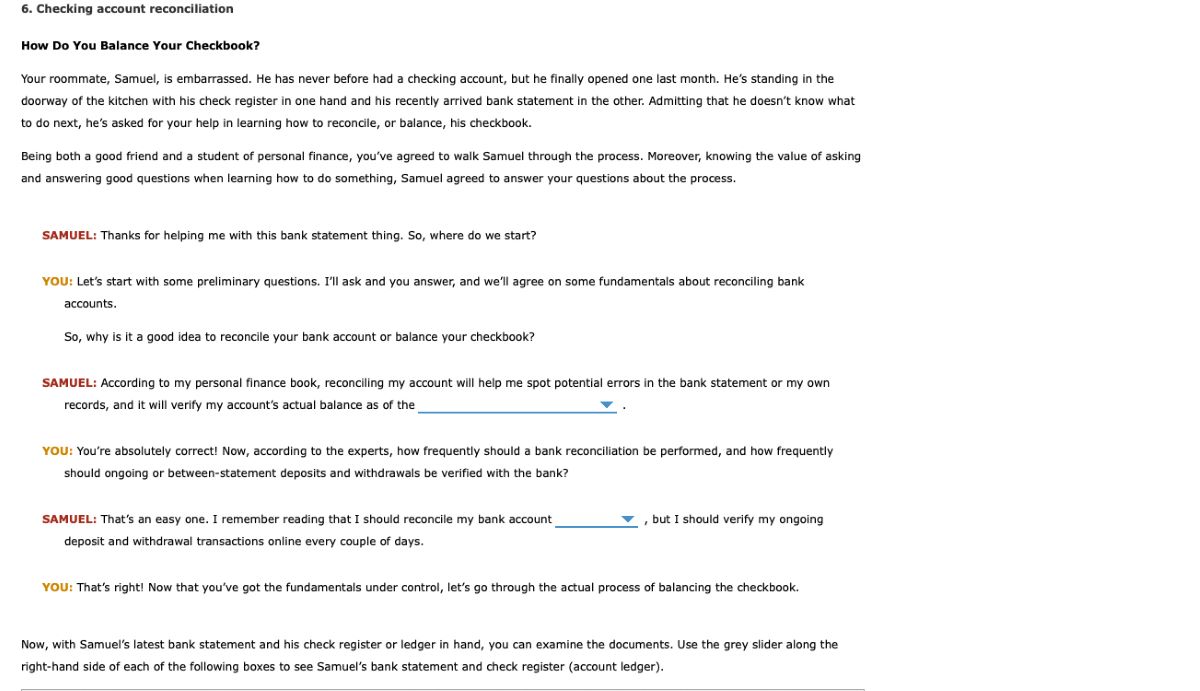

Finance
Does Your Credit Go Down When You Check It
Modified: March 6, 2024
Learn how checking your credit score affects your overall financial health. Discover if your credit score decreases when you monitor it and gain insights into managing your finances effectively.
(Many of the links in this article redirect to a specific reviewed product. Your purchase of these products through affiliate links helps to generate commission for LiveWell, at no extra cost. Learn more)
Table of Contents
Introduction
When it comes to managing your finances and maintaining a healthy credit profile, understanding the factors that can impact your credit score is essential. One question that often arises is whether your credit score will go down when you check it. In this article, we will explore the relationship between checking your credit and its impact on your credit score.
Before diving into that, let’s briefly discuss credit scores. Your credit score is a numerical representation of your creditworthiness, providing lenders with an assessment of the likelihood that you will be able to repay any borrowed funds. It is typically based on various factors, including your payment history, credit utilization, length of credit history, types of credit used, and new credit inquiries.
With the increasing importance of credit scores in determining loan approval, it is natural to wonder about the impact of checking your own credit. The good news is that when you check your own credit score, it generally does not negatively affect your credit.
However, it is important to distinguish between two types of credit inquiries: soft inquiries and hard inquiries. Soft inquiries have no impact on your credit score, while hard inquiries can have a temporary negative effect.
In the following sections, we will delve deeper into the differences between soft and hard credit inquiries, explore how credit monitoring can affect your credit score, debunk common credit score myths, and provide tips for protecting your credit score.
Understanding Credit Scores
Before exploring the impact of checking your credit, it is important to understand how credit scores are calculated. Credit scores are numerical representations of your creditworthiness, ranging from 300 to 850 in most scoring models. The higher your credit score, the better your creditworthiness is perceived to be.
Credit scores are typically calculated using a combination of factors, including:
- Payment history: This refers to your track record of making timely payments on your credit accounts. Late payments or delinquencies can lower your credit score.
- Credit utilization: This is the amount of your available credit that you are currently using. Keeping your credit utilization below 30% of your available credit limit is generally recommended for maintaining a good score.
- Length of credit history: The length of time that you have had credit accounts is also considered. A longer credit history can have a positive impact on your credit score.
- Types of credit used: Having a mix of different types of credit, such as credit cards, loans, and mortgages, can demonstrate your ability to manage different types of credit responsibly.
- New credit inquiries: This refers to the number of times your credit report has been accessed in a given period. Too many new credit inquiries can negatively impact your credit score.
It’s important to note that different credit scoring models may weigh these factors differently, so your credit score may vary slightly depending on the scoring model used.
Now that we have a basic understanding of credit scores, let’s explore how checking your credit can potentially impact your score.
The Impact of Checking Your Credit
One of the most common misconceptions is that checking your own credit will automatically lower your credit score. Fortunately, this is not true. When you check your own credit, it is considered a soft inquiry, which does not have a negative impact on your credit score. Soft inquiries are only visible to you and do not affect how lenders assess your creditworthiness.
The purpose of a soft inquiry is to allow individuals to monitor their credit and stay informed about their financial health. It is a responsible practice to regularly check your credit score and review your credit report for any errors or discrepancies.
On the other hand, hard inquiries can have a temporary impact on your credit score. Hard inquiries occur when a lender or financial institution pulls your credit report as part of the application process for credit, such as applying for a loan or credit card. Hard inquiries are visible to other lenders and can affect their perception of your creditworthiness.
It’s important to note that the impact of hard inquiries on your credit score is generally small and short-lived. Typically, a single hard inquiry will only lower your credit score by a few points, and its effect will diminish over time. Multiple hard inquiries within a short period of time, such as applying for multiple loans or credit cards, may have a more significant impact on your credit score.
Fortunately, credit scoring models take into account that individuals may rate-shop for the best loan or credit card offer. To mitigate the impact of multiple hard inquiries, they consider all inquiries made within a specific window (usually 14 to 45 days) as a single inquiry. This allows you to shop around for credit without excessively damaging your credit score.
Now that we understand the difference between soft and hard inquiries, let’s take a look at how credit monitoring can affect your credit score.
Soft Credit Inquiries
Soft inquiries, as mentioned earlier, have no impact on your credit score. They occur when you check your own credit report, when a lender pre-approves you for a credit offer, or when a company performs a background check for non-credit purposes, such as employment verification.
Soft inquiries are typically initiated by you or companies that you have given consent to access your credit information. They are used for informational purposes only and do not affect your creditworthiness or the lender’s decision to extend credit to you.
Some examples of soft inquiries include:
- Checking your credit score through a reputable credit monitoring service.
- Checking your credit report to ensure accuracy and identify any potential errors.
- Receiving pre-approved credit offers in the mail.
- Employers conducting background checks that include a review of your credit history but for non-credit purposes.
It is important to note that while soft inquiries do not impact your credit score, they will still appear on your credit report. However, these inquiries are only visible to you and do not affect how lenders evaluate your creditworthiness.
Soft inquiries are an essential part of monitoring your credit and staying informed about your financial health. Regularly checking your credit report can help you detect identity theft, spot errors in your credit history, and take appropriate actions to address any issues that arise.
Next, we will explore the impact of hard credit inquiries and how they differ from soft inquiries.
Hard Credit Inquiries
Unlike soft inquiries, hard inquiries can have an impact on your credit score. Hard inquiries occur when a potential lender checks your credit report as part of the application process for credit. This could be when you apply for a loan, credit card, or mortgage.
Hard inquiries are visible to other lenders and can affect their perception of your creditworthiness. Each hard inquiry can temporarily lower your credit score by a few points. However, the impact is usually minimal and will diminish over time.
It’s important to note that not all credit checks are treated equally. For example, multiple inquiries within a short period of time—typically within 14 to 45 days, depending on the credit scoring model—related to loan shopping are generally treated as a single inquiry. This means that if you are applying for multiple loans or credit cards within a short timeframe, they will not have as significant of an impact on your credit score as individual inquiries spread out over a longer period.
Hard inquiries are an important consideration for lenders because they indicate that you are actively seeking credit. A high number of hard inquiries on your credit report within a short timeframe may be perceived as a risk factor, as it suggests a potential reliance on credit and a higher likelihood of taking on additional debt. However, it’s worth mentioning that this is just one factor among many that lenders consider when evaluating your creditworthiness.
It’s important to be mindful of the number of hard inquiries you have on your credit report and to only apply for credit when necessary. Avoiding unnecessary credit applications can help maintain a healthy credit score.
Now that we have explored both soft and hard inquiries, let’s examine the role of credit monitoring in relation to credit scores.
Credit Monitoring and Credit Scores
Credit monitoring plays a vital role in maintaining a healthy credit score. It allows you to keep a close eye on your credit report, detect any suspicious activity or errors, and take prompt action to rectify them. By regularly monitoring your credit, you can ensure that your credit history remains accurate and up to date.
Credit monitoring services often provide access to your credit score, allowing you to track changes over time. Monitoring your credit score can help you understand how certain financial decisions or actions impact your creditworthiness.
While checking your credit score through a credit monitoring service is considered a soft inquiry and does not impact your credit score, it is important to note that the credit score provided by these services may vary slightly from what lenders see. This is because there are different scoring models and variations in how creditworthiness is evaluated. However, the credit score you receive through credit monitoring can still provide valuable insights into your overall credit health.
In addition to credit monitoring services, many credit card issuers and financial institutions offer free credit score monitoring as part of their services. It is beneficial to take advantage of these offerings to stay informed about your credit status.
By actively monitoring your credit, you can identify and address any issues that may arise promptly. This can help prevent negative impacts on your credit score and provide you with peace of mind regarding your financial reputation.
Next, let’s address common myths and misconceptions associated with credit scores.
Credit Score Myths
There are several common myths and misconceptions surrounding credit scores that can lead to confusion and misunderstandings. Let’s debunk some of these myths to help you better understand how your credit score works:
- Checking your own credit score will hurt your credit: As mentioned earlier, checking your own credit score is considered a soft inquiry and does not impact your credit score.
- Closing credit card accounts will improve your credit score: Closing credit card accounts can actually have a negative impact on your credit score. It can decrease your overall available credit and impact your credit utilization ratio, which are both factors that can affect your score.
- Having a lot of money in the bank will boost your credit score: Your credit score is not directly influenced by the amount of money you have in your bank account. It is determined by factors such as payment history, credit utilization, and length of credit history.
- Your income level affects your credit score: While your income may be considered during the application process for credit, it is not a factor that directly impacts your credit score. Credit scores are based on your credit history and financial behavior, not your income.
- Closing old accounts will remove them from your credit report: Closing old accounts does not remove them from your credit report. Positive account information, such as on-time payments and good credit history, can remain on your report for several years and contribute positively to your credit score.
By understanding these common credit score myths, you can make more informed decisions about your credit and work towards improving and maintaining a healthy credit profile.
Now, let’s discuss some tips for protecting your credit score.
Protecting Your Credit Score
Protecting your credit score is crucial for maintaining your financial well-being and ensuring access to favorable credit terms in the future. Here are some tips to help safeguard your credit score:
- Pay bills on time: Late or missed payments can have a significant negative impact on your credit score. Set up automatic payments or reminders to ensure that you pay your bills on time.
- Maintain a low credit utilization ratio: Try to keep your credit utilization below 30% of your available credit limit. High credit utilization can signal increased risk to lenders and potentially lower your credit score.
- Monitor your credit regularly: Stay vigilant by regularly monitoring your credit report for any errors, inaccuracies, or signs of potential identity theft. Report any discrepancies immediately to the credit reporting agencies.
- Limit credit applications: Be selective when applying for new credit. Each hard inquiry can impact your credit score, so only apply for credit when necessary and avoid excessive applications within a short period of time.
- Keep old accounts open: Long-standing credit accounts help establish a positive credit history. Even if you don’t actively use an old credit card, it’s generally advisable to keep it open to maintain a longer credit history.
- Use credit responsibly: Make wise financial decisions, such as paying off credit card balances in full each month and avoiding maxing out your credit cards. Responsible credit usage demonstrates your ability to manage credit effectively.
- Be cautious of scams and identity theft: Protect your personal and financial information and be wary of phishing attempts, fraudulent schemes, and identity theft. Regularly monitor your financial accounts for any suspicious activity.
By following these tips, you can protect your credit score and maintain a solid financial foundation. Remember, a good credit score opens doors to better interest rates, loan approvals, and financial opportunities.
To summarize, checking your own credit does not harm your credit score, as it is considered a soft inquiry. It is important to be cautious of hard inquiries that occur when applying for credit, as they can have a temporary impact. By practicing credit monitoring, debunking credit score myths, and implementing effective credit protection measures, you can take control of your credit health and work towards achieving your financial goals.
Do you have any more questions or concerns about your credit score? Feel free to reach out to a financial expert for further assistance.
Conclusion
Understanding the relationship between checking your credit and its impact on your credit score is important for maintaining a healthy financial profile. By debunking common myths and misconceptions, we have learned that checking your own credit does not lower your credit score. Soft inquiries, such as checking your own credit or receiving pre-approved credit offers, have no impact on your creditworthiness.
On the other hand, hard inquiries, which occur when applying for credit, can temporarily lower your credit score. However, multiple inquiries within a short period of time, typically related to loan shopping, are usually treated as a single inquiry, minimizing their impact on your credit score.
Utilizing credit monitoring services can be a valuable tool for staying informed about your credit health and detecting any potential issues. Regularly monitoring your credit report allows you to identify and address errors, inaccuracies, and signs of identity theft promptly.
Protecting your credit score involves practicing responsible credit usage, such as making timely payments and maintaining a low credit utilization ratio. It is also important to be cautious of scams, phishing attempts, and fraudulent activities that can compromise your personal and financial information.
By following the tips provided in this article and staying informed about your credit, you can take control of your financial well-being and maintain a strong credit profile. Remember, your credit score is a reflection of your financial habits and behaviors, and it plays a significant role in your ability to secure favorable credit terms and achieve your financial goals.
If you have any questions or concerns about your credit score or financial situation, it is always advisable to consult with a financial professional who can provide personalized guidance and advice.
Start managing and monitoring your credit today, and pave the way for a solid financial future.














